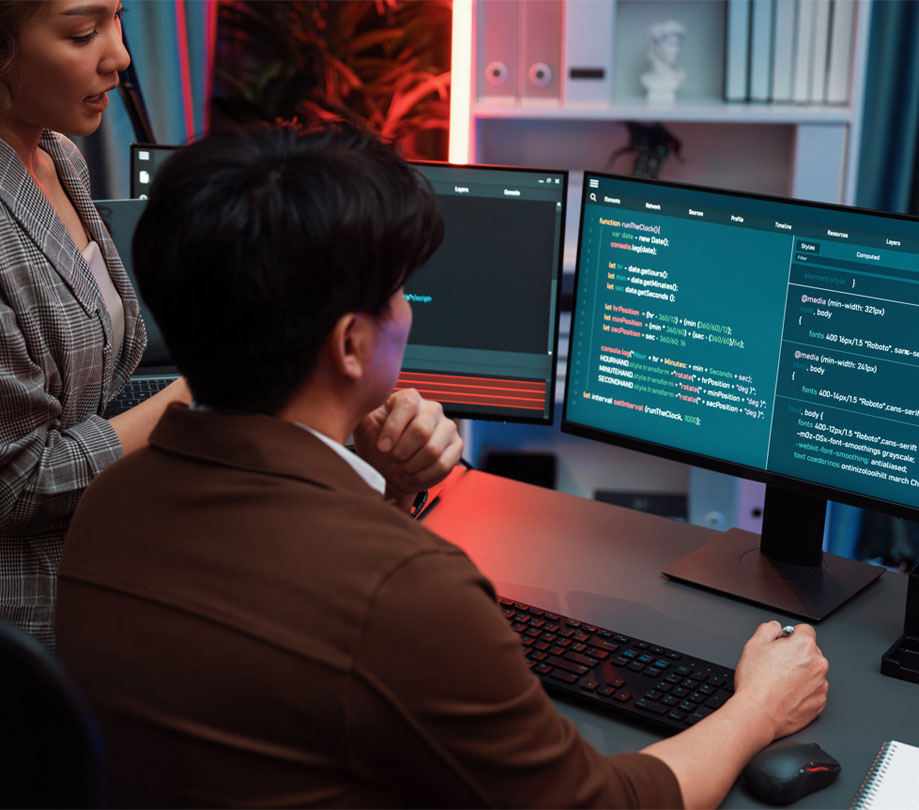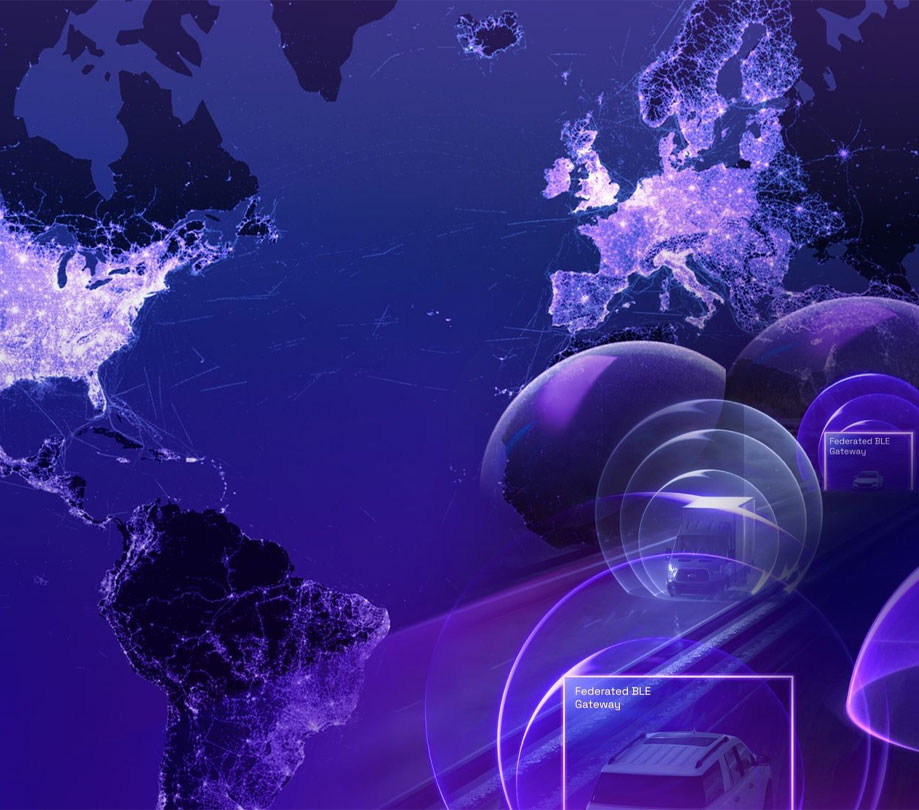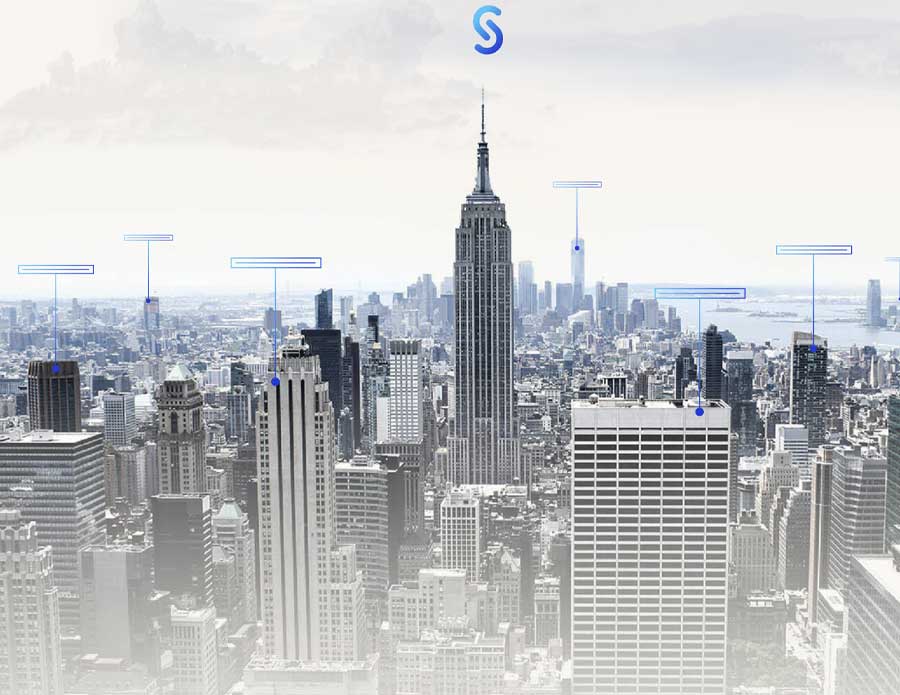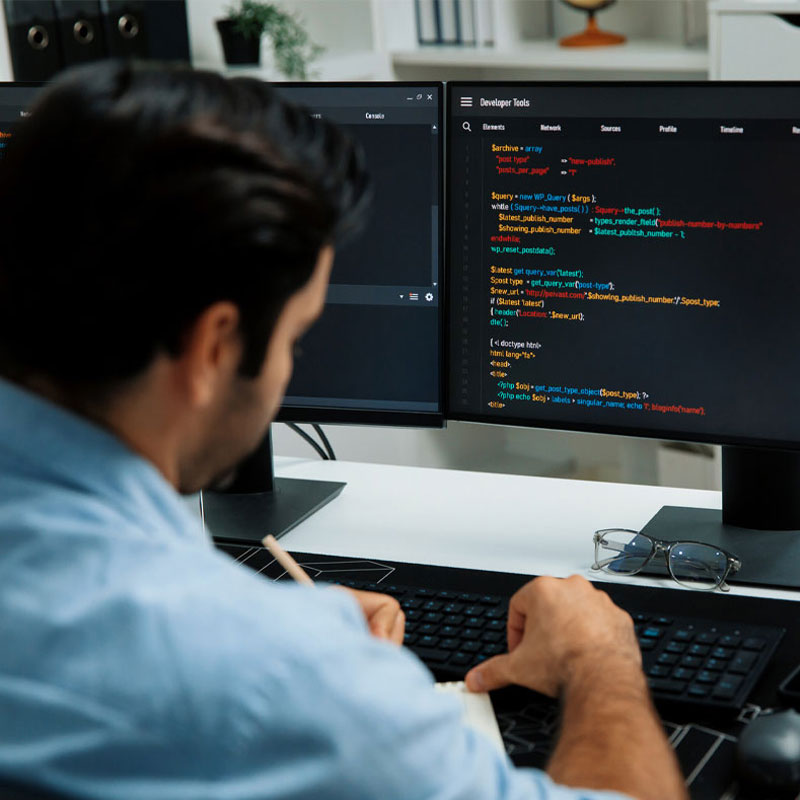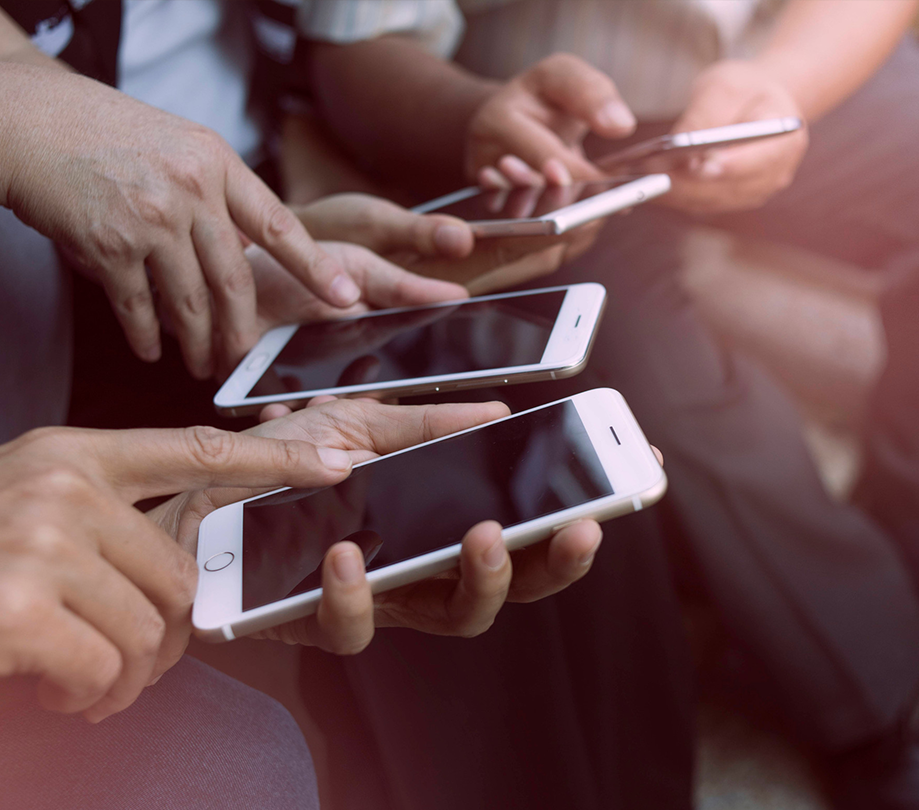Security
A Blockchain messaging platform that's unstoppable
Tuesday, April 3, 2018

|
Richard Harris |
A talk about encryption and other security methods that are supposed to be keeping our data safe. Through blockchain, security has seen a dramatic increase in the protection of personal data, although having it's own downsides.
Today’s instant messaging is about to get a violent shove forward by way of encryption, and Blockchain. Almost all messaging platforms rely on client to server communication, where a unique ID is given to a thread, and stored in a centralized database somewhere. But it’s always been volatile to censorship, network blocking, or any other form of controlled policing.
Unblock-able instant communication used to sound like a pipe dream, that is, until Blockchain technology came along. Imagine having a network that is unstoppable by any government, unbreakable to spy on, and just about impossible to breach.
Crypviser is a decentralized platform that does just this. The platform has no servers, no information on users. Neither email address nor mobile number is needed to use the service. All authentication is done Via Blockchain which completely eliminates the possibility for a Man In The Middle attack.
Their CCO, Mark Babbitt. recently sat down with is to open up about the platform, the benefits of encryption technology, collecting a users personal information, cryptocurrencies, and a whole lot more, in an exclusive interview.
ADM: What do you feel has been the biggest advancement in the Encryption field within the last 10 years?
Babbitt: There has been definite advancements in the field of Encryption, from RSA encryption to Elliptic Curve Cryptology to the future of Quantum Computation and there is also a historical pattern which follows. The countries with the strongest levels of encryption methods tend to lead the world, in their military might and economical prowess. It is also a sad fact, that those with the highest level of encryption are also the ones with the most power, which is perhaps how they keep hold of it.
There has been advancements in the field of Encryption this is true, however the only ones with access to them are either Governments, Multimillion dollar corporations, The Military Industrial Complex, or Prominent Politicians, the rest of us, well, we have to settle for second rate age old encryption models.
It seems to me that the everyday worker, the waitress, the bus driver, the sales manager, the doctor, the student, all should be able to have the same level of security as heads of states and the military, we should all have the same access to encryption methods and the same level of security and privacy when it comes to what we send over the internet, this has been our goal from the start.
ADM: How important has the need for strong Encryption developed in the last decade?
Babbitt: With our lives being more and more connected to the internet, a safe and secure Encryption model becomes ever more important. We do our banking, our shopping, our communications, order our groceries, airline tickets, even our cars will be driven for us in the very near future. In order to have these services secured from outside threats, the need for security is paramount. I for one don't want someone ordering 73 frozen pizzas for me from Amazon, nor do I want someone taking control of my autonomously driven car.
ADM: Has the leakage of personal information increased over the last few years in the App Market?
Babbitt: Most definitely. Some Apps will work only with your permission, allowing them to access your contact list, or your location, I mean a Navigation App wont work very well if it doesn't know where you are.
Though others which ask for such permissions which are not really necessary to use the App. For instance, I am an avid chess player, I play on average 10 games of 1 minute Chess a day. So in order for me to use this App, to get the full features it offers what kind of permissions does it ask for, or need? My contact list? My location? My sites visited? My shopping habits?
Of course it doesn't need any of things l mentioned, though when you read the fine print of the app, that is the type of information it collects about me, none of which is necessary to use the App. Hmm something's not quite right here.
ADM: Why would an App developer of a Game care or need your personal information?
Babbitt: Well to put it frankly, to sell it. The App developers collect our online activities and habits through the App and then, in turn, sell them to Marketing companies for large sums. Fairly recently the US House of Representatives approved a "congressional disapproval" vote of privacy rules, which gives ISPs the right to sell your internet history to the highest bidder. This means that whoever you pay to provide you with internet access will be able to sell everything they know about your use of the internet to third parties without requiring your approval and without even informing you. Your usage of certain Apps, your browsing habits via smartphone or tablet are all for sale.
ADM: Has the Blockchain increased or decreased the security of personal data?
Babbitt: The Blockchain has assuredly increased the security of personal data. Like the name implies, the blockchain is basically a series of blocks connected together in which each block consists of a transaction. Each block is connected to all the blocks before and after it, which makes it very difficult to tamper with. The records on a blockchain are secured through cryptography. Network participants have their own private keys that are assigned to the transactions they make and act as a personal digital signature. If a record/transaction is altered, the signature will become invalid and the peer network will know right away that something has happened. Sending public keys, for example, over the blockchain eliminates the need for a central server, it also eliminates to possibility of Man In The Middle attacks which has been the achilles heel to End to End encryption.
ADM: We hear stories all the time about this Messenger of that Messanger not being safe, or secure, please elaborate on that.
Babbitt: Well a lot has to do with the false security we place on End to End encryption. The phrase has become like a blanket on a cold night, something to help us feel soft and safe and warm and have that fuzzy feeling inside. Though in reality End to End encryption has been faced with the same issues since its birth and those issues are rarely talked about. End to End encryption requires a third person, it requires trust. Matthew Green, a cryptography professor at Johns Hopkins University stated “If you build a system where everything comes down to trusting the server, you might as well dispense with all the complexity and forget about end-to-end encryption.” This is the age old dilemma facing E2E encryption, one that I am happy to say we solved.
ADM: With the ever growing popularity of Cryptocurrency and the factoid that almost everyone has an instant messenger on their smartphone, how soon will we see a marriage of the two?
Babbitt: Very very soon. I dont want to pat ourselfs on the back but, In April that is exactly what we are doing, incorporating a Cryptocurrency wallet with an Instant messaging platform. It is a logical development.
ADM: Decentralization Versus Centralization, what's your take on both?
Babbitt: Well let's start with Centralization. The Pros are its easy to use, flashy, lots of features and well known. The Cons are it isn't very safe, it has one central point of attack and it can be manipulated by Governments or a central authority and when the security is breached the damages are substantial.
Decentralizations benefits are, safe, secure, no one person in charge, immune to manipulation by a central authority figure or group and I would also add it nurtures faster innovation. The Cons of Decentralization are, not as easy to use, lack of features and it can be cumbersome at times.
ADM: How can a Pay to use Instant messaging App succeed when there are numerous and well established free ones on the market?
Babbitt: Well to answer this we first need to answer how the other Free Communication Apps financially support themselves. I mean it isn't cheap running those servers that they have. So how do they make it?
Well as I mentioned, they sell your information to the highest bidder, the more you use their service the more money you make them. There is a misconception that these companies make their money solely on advertising and while part of that is true it is miniscule compared to the amount they recieve by selling your private information. There has been attempts to quell the fears of people, concerned that their information would be put on the chopping block to the highest bidder, words of comfort such as, “We never sell our users information” ok, fine, well what about “Rent out, lend, share, etc”. Believe you me, there are ways around this, words can be used to misguide people, to convince them of something that is not entirely true. “We never sell our users information, we only share it for an undisclosed time for an undisclosed fee to our undisclosed partners .”

Mark Babbitt, CCO of Crypvisers
An App which is a pay to use App, needs to be much more connected to its users wants and needs, for without them the company behind the App has no chance to succeed, for its revenues are solely connected to the satisfaction of their customers. We, for instance, have no possibility to collect any information on our users, no email address, no mobile numbers, no physical address, nothing. This is what we are facing, this is our biggest challenge. We have decided to focus on a level of security that is, well, game changing.
Using the Blockchain as a way to facilitate the exchange of the public keys gives people a level of security unknown to messaging apps, being decentralized means we have no server to attack. Being the first communication platform not to require an email address, mobile phone number, physical address or even a name is groundbreaking, a level of anonymity not before seen in this market.
We realize that we are dependant on our customers, for as I mentioned we have nothing to fall back on. Putting out a revolutionary product we believe customers will see the advantages it has to offer.
ADM: Should there not be a Control switch, an oversight, on each and every App being developed and published on the open market?
Babbitt: There is oversight. In cases of an Apple product the oversight is done by Apple. They have a very strenuous quality check on each and every App they allow on their App store. If it is an Android Product there oversight is based on the App performance, not necessarily on how well it sells or how many times it is downloaded but it’s actual performance on the devices.
The question about a “control switch” I believe you are referring to cases such as Governments limiting the use of a specific App within their borders, for example the Iranian Government blocking the use of Instagram and Telegram a few months ago, or China, or India, blocking the use of Whatsapp just to name a few. So, do I believe there should be a “control switch”? No.
Freedom of Information is an extension of freedom of speech. a fundamental human right. Freedom of speech as a right, includes not only content, but also the means of expression and in todays connected world, social media, messaging apps, communication platforms have become the primary tool which people use to express themselves.
Giving a central authority the power to turn that off, to limit, to filter, to obscure the facts or to hid the real truths, well that is a precarious thing, and I do believe history will back me up on this.

Become a subscriber of App Developer Magazine for just $5.99 a month and take advantage of all these perks.
MEMBERS GET ACCESS TO
- - Exclusive content from leaders in the industry
- - Q&A articles from industry leaders
- - Tips and tricks from the most successful developers weekly
- - Monthly issues, including all 90+ back-issues since 2012
- - Event discounts and early-bird signups
- - Gain insight from top achievers in the app store
- - Learn what tools to use, what SDK's to use, and more
Subscribe here



